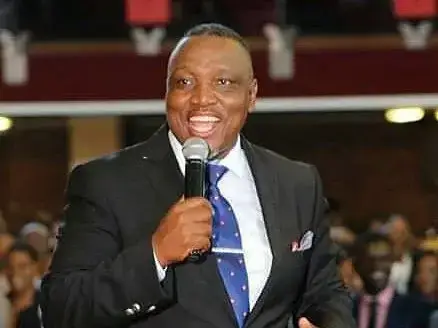Proceedings in the rape case against Bishop Stephen Zondo were delayed due to a dispute over an expert report focusing on the late reporting of rape cases.
Zondo appeared before the Pretoria High Court on Thursday.
He faces charges including rape, indecent assault and defeating the ends of justice.
Critical evidence
The defence, led by Advocate Piet Pistorius, SC, previously raised objections to the admission of the report prepared by Professor Gerard Labuschagne. He argued that it was provided to them belatedly, and that it was irrelevant to the matter at hand.
Despite these objections, the state, represented by Advocate Jennifer Cronje, argued for the report’s inclusion as critical evidence in the case.
During the proceedings on Thursday, Judge Mokhine Mosopa ruled in favor of the state. The judge allowed the evidence of Labuschagne to be presented. Labuschagne is a noted clinical psychologist with extensive experience in psychology and criminology.
Debate over clinical psychologist report
The decision was followed by heated debates over the relevance of international cases cited in the report. The defense urged for a focus on South African instances.
However, the state contended that the global perspective offered by Labuschagne’s report was crucial for a thorough understanding of the issue.
The defence stated that he is failing to see the relevance of this report, and “will never understand”.
“South Africa is but one of many countries where rape instances are rife,” the state countered.
Global perspective on rape
In response to the defence’s concerns over the report’s references to international cases, the state argued the relevance of a global perspective on rape. It said that limiting the witness to South African cases would undermine the breadth of Labuschagne’s expertise. However, Labuschagne was asked to focus his testimony on the South African context. This under the judge’s directive.
Labuschagne confirmed his authorship of the 21-page report which was signed on 29 January 2024.
Labuschagne’s testimony highlighted the profound psychological impact of sexual violence on victims. He said many delay reporting due to fear, shame, and a lack of understanding of the legal definitions of rape.
Barriers to reporting rape
His report, drawing on extensive research, points to a startling statistic. This says a rape victim in South Africa has only an 8.6% chance of seeing justice served.
The report also sheds light on the barriers to reporting. These include fear of retaliation and self-blame. The daunting prospect of reliving the trauma during police and legal proceedings is another factor.
Furthermore, it emphasises the discrepancy in the likelihood of receiving medical or mental health support. This is between those who report their assault and those who do not.
After a day of heated debates, Judge Mosopa acknowledged his initial unfamiliarity with the report. He expressed his intention to review the document more thoroughly. A deeper understanding might influence the proceedings, he said.
The case is set to continue on Friday, with further testimony from Labuschagne expected.



